May our dear friend Phyllis Wallbank be welcomed into the feast of Our Lord’s Last Supper!
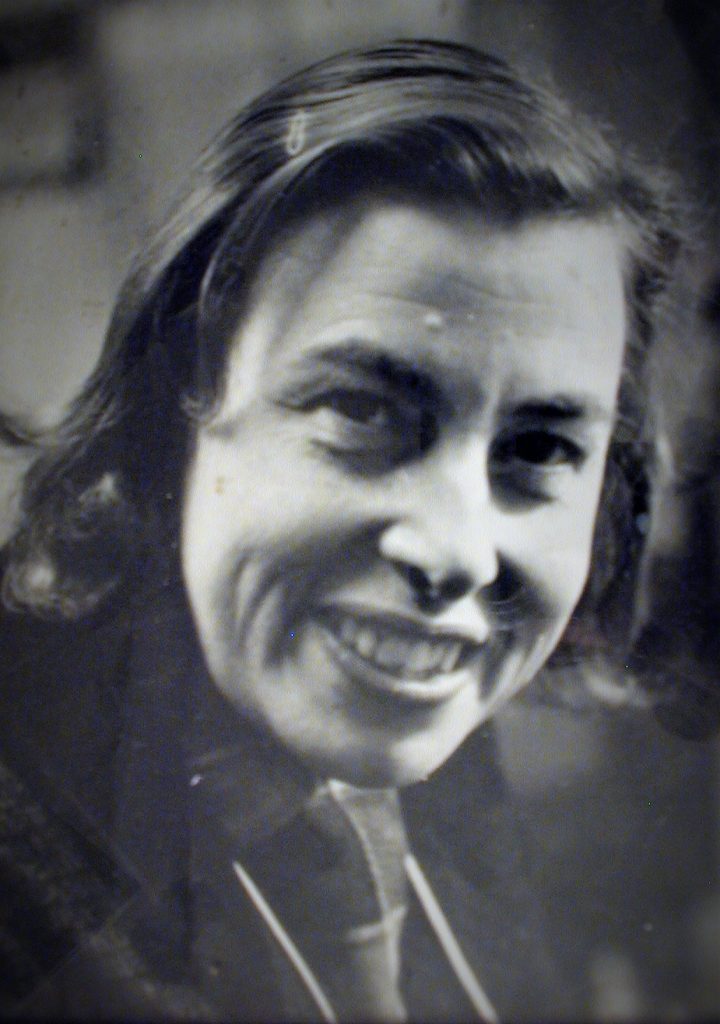
Holy Thursday, April 9, 2020
On the Passing of Phyllis Wallbank. September 1, 1918 – April 9, 2020.
Dear friends,
It has been a strange week with many of us pondering our exclusion from our churches and the mysteries of Holy Week.
This morning a dear friend of mine, Phyllis Wallbank, passed away.
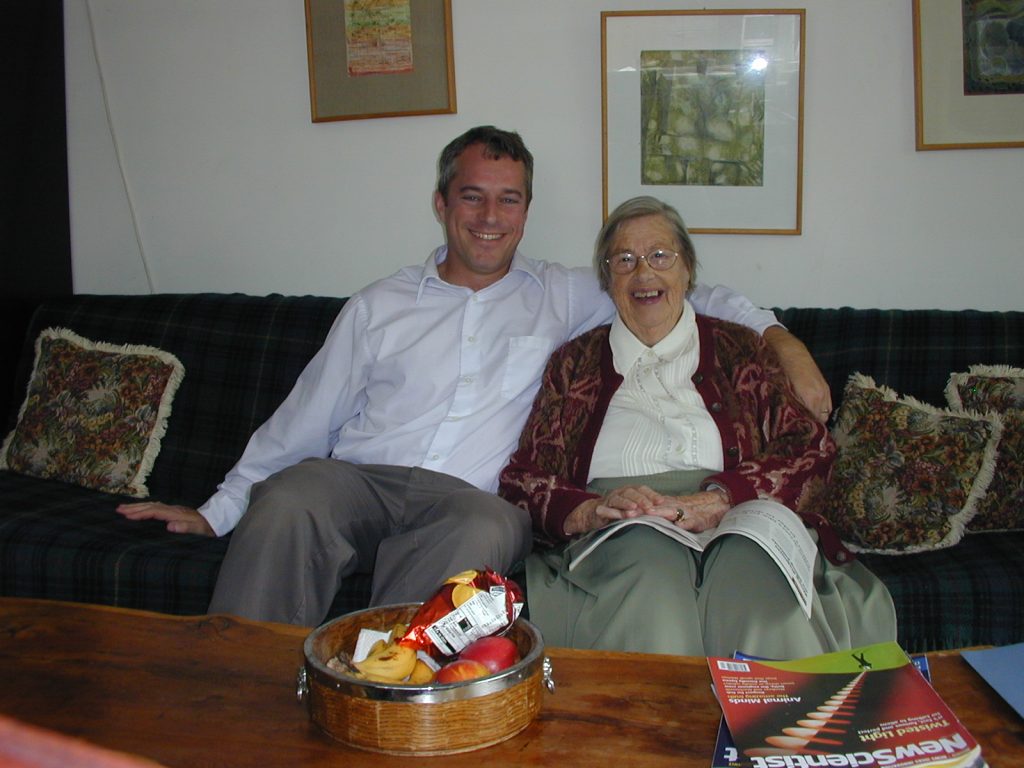
Her heart was filled with love for others throughout her life. I saw a bright soul the very first time I saw her in Boston in June 1998 at the annual Lonergan workshop. She had presented some of the Montessori math materials and a few of the practical life activities during a talk. The talk not only revealed a few good ideas, but manifested an ingenious embodiment of a life dedicated to helping form the imagination, the mind, and the souls of others. That was what Phyllis was all about. I spoke with Phyllis right after that talk and soon thereafter felt called to join her in a profound mission to help others find their way in learning about the world, its beauty, its character, and its Creator.
For the next 11 years I had the privilege of working with her and learning from her about the unique inner life of the many children whom she had taught over the years. She opened for me a deeper understanding of the mysteries that reside in each child, but just as much in each one of our souls. She taught me how to really love those in front of us and to give attention to those passing by. I remember once a young man skateboarding down the street in Dorney near her home. She caught his attention and spoke to him about his skateboarding. She talked about how he could convince the city to build a skateboarding park and you could see his excitement rise up. I believe he did.
She worked tirelessly at awakening others to life, and to making a difference. She especially would find those who were stumbling along their way, and with great expectation, she would awaken them from their inner despair or slumber. She would get them to stand up with the good that was planted in them and become themselves and help others. She would “spotlight the good” as she was fond of saying, and then “the good will grow.” She was a mother, sometimes strongly so, bright as the sun, who would shine on the good of those in front of her. And then they would be drawn out of their shells, and begin to put forth limb, and then start to move forward, and eventually help bring life to others. I think that captures the essence of Phyllis.
This essence was as firm as any rock is solid, and it could burn like the sun on a hot summer day.
I felt that light many times over the next 10 years when I visited her at her home on Dorney Common near London. And when she came to the US to work with us, and give talks at St. Anselm’s Abby or with the Knights of Columbus or at Boston College, she always brought in new discoveries and new tales from her past to illumine all of us in our own mission in life.
When I would go to her home I could see the real treasures of her heart. These were her husband who had died two years before I met her. Newell was his name. And her love for her children – Judith, Mark, and Ben – was everywhere. Phyllis, after first meeting Maria Montessori, started the Gatehouse school in the “gatehouse” of St. Bartholomew the Great parish in East London. She started the school for her daughter Judith, and really for all of her children. Phyllis did not always know what was best, but when she saw something that was good for her beloved family, and for anyone placed in her path, she would bring that good to them, even if they did not know it was good for them, or even if they rejected it.
I certainly was one of those in her life with whom she brought a good. That good was her life’s work, a worked dedicated to the authentic education of children, teenagers, and adults. It was not what we mean by education in the usual sense of the word. Usually education means to provide information to another and to help them critically think about that information. But for her, education was to allow the light of life in another to shine brightly. Education was to help others to discover themselves and the good that God has placed in their inner soul, a soul that they could then give away for the good of others and in a bond of love with God. Authentic education helps others to discover God’s love for them which has both created them and also given them a purpose in this world. At her school, she would have the children say a prayer each day: “God help me to love you more today.” It was simple and profound.
Starting in the early 2000’s I began to discover the profound anthropological depth of Phyllis’s work (and Montessori’s). I began to understand why Phyllis was at the Lonergan workshop in 1998 and for a number of years thereafter, and why she saw in Lonergan’s formulation of the human person a way to ground her life’s work.
In those years and for many years to come, I gave little and inadequate attention to the real human souls that God placed in my life. I think many of us do that. She helped me and countless others to rediscover the gift of those standing near us or passing by. For me, it started with her firm invitation that I go with her on the “London Run.” The London Run was a simple act of love for the homeless, wandering over the streets of London, especially young teenagers who had left or had been abandoned by their families. Materially, we brought sandwiches and food to them. It was a spontaneous effort: not one meant to be a big operation, with a coordinated effort, and a business plan. Phyllis feared such systems and thought them inadequate to dealing with the human beings in front of us. Instead she relied on simple and spontaneous acts of love. She would call on some friends, put some food together, ask for some bread and chips from a store, and then head into town to a particular street corner where she had visited before. She brought food but even more important was to show up in their lives. She brought herself, and then spent time with them because they were–not because of anything we had to offer or anything they could give, but just because they existed. Each of them was important because each one was a beloved child of God. She would treat them as a friend, and asked them about their lives, and listen to them. This spontaneous effort that started with one person and one trip to London grew into more than 400 spontaneous efforts that spread throughout London and eventually into the city of Slough. It was never organized into a big coordinated system. Rather, it was an act of many individuals and friends stepping up to help others.
For the next few years, the Run would be one of my highlights in visiting Phyllis. I even got to know a few of her regular friends on the street, and some of the Eton boys who had gone along to help because of her. I met children from many parts of England, and I met homeless Irish and English men and women. Just as today’s Holy Thursday opens up the reality of God’s love for us that begins its culmination in the Last Supper, so these Runs brought a simple supper that helped us to enter the real depths of every human soul we met. These people dwelled in Phyllis’s heart, and they, along with all of her children both at home and in school, constantly moved her with great energy every day of her life.
Phyllis’s soul was filled with the beauty of creation, the treasures of men, women, children, the handicapped, all of whom could bring us life more than we can bring to them. She was all about a loving Father in heaven who cherishes each one of us. Phyllis saw this beauty in my children. As much as I could see it in them, she saw it better. Her life mission lived with commitment and perseverance, her life of suffering, her own gifts and mistakes in her own life that impacted her own beloved family helped her to see me and my wife and my children better. The year I met Phyllis was the year that my first son was born. The second came the next year. And we took them both to meet Phyllis who greeted them warmly in her own home. Over the next couple of years, she gave to me things I could develop for the Montessori world but also for my own children. Phyllis would find where a person was in life, what moved him, what would awaken him, and then she would spotlight and awaken that person to a simple step forward. She would propose nothing grand at first, but a simple step that would bring them life and move them forward.
Over the years I also learned of her work with mothers who had been imprisoned. She would go and be with them. For them she contacted and successfully moved political leaders to allow greater visitation rights for imprisoned mothers to be with their children. Once again I saw her see the real inner life of another, in this case both a broken mother and her children, and she would tend to their real needs, starting with the need of a mother to spend time with her own children. Many of these children had become lost and reconnecting them with their mother opened up new hope for them and for their mothers.
One of my favorite rooms in her home was on the top floor. It was a kind of attic room built with windows that overlooked her backyard and out into the nearby farms and farmland.
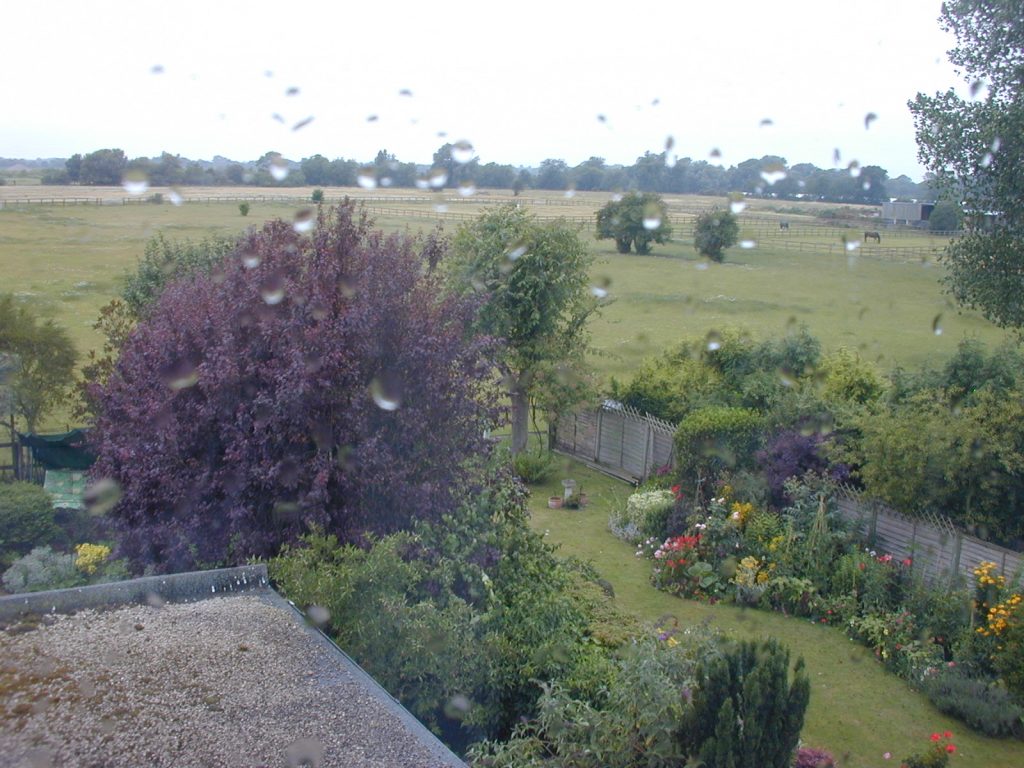
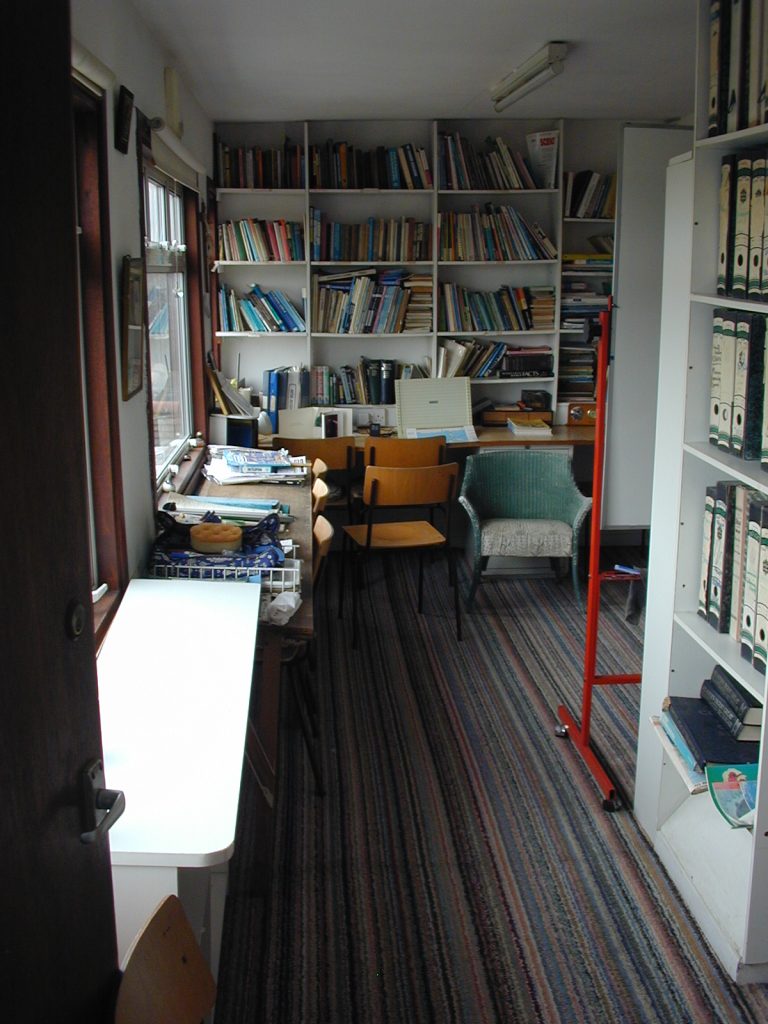
It quieted the soul. Phyllis lived on Dorney Commons, the last open field in England for cattle to roam, and nearby were homes built in the late 1400s and early 1500s. Down the road was an old church parts of which were built in the 12th century.
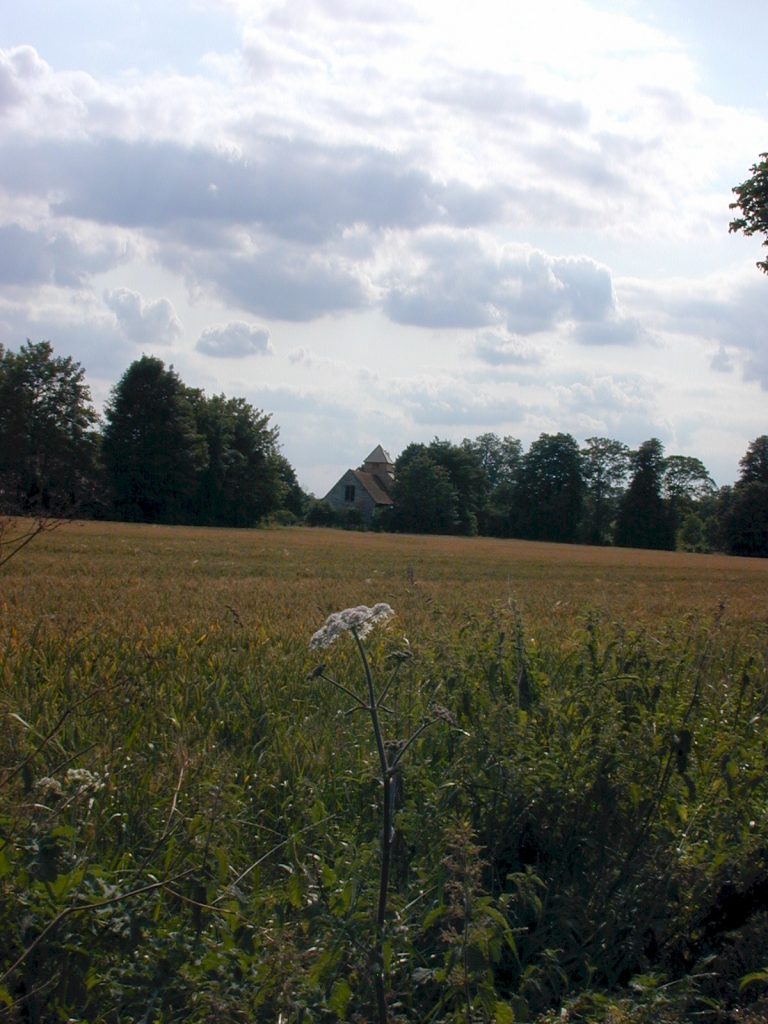
Being there brought one into another world. And from this attic room one’s eyes could gently wander over this world and one’s heart would be awakened to the goodness of life. This attic room was the room into which she would bring young students and help them as a tutor, a tutor in the way that Saint John Henry Newman had meant, namely as a caregiver to souls. In this room one could find years of materials that she used to help these young people. The setting brought to them a peace of soul so that they could focus on the tasks before them–whether math, reading, art, or some other subject with which they were having difficulty. Phyllis showed me many of her activities in that room over the years, and though I was in my early 30s when I first arrived, I was her student as well. She could see into my own strengths and weaknesses without me saying a word or telling her about them. One time she showed me how to teach someone with dyslexia how to read, by carefully moving their finger under each word, cherishing that word as if it were a friend, and then saying it as if it were a great treasure to pronounce, and then sliding one’s finger to the next word and doing the same. This helped the child to focus and follow the line of thought and meaning, and thus enter into the author’s intent. It would give the child great joy in encountering another through these words. She must have known shortly after I first met her of the difficulty that I had in my own life when I was a child in following words and writing words and in reading. She was showing me how to help others truly read so as to enter into another’s heart and mind, but really she was showing me what was needed to overcome the difficulties that I had had as a child and then inspire me to do the same for others.
Every visit I would treasure the times that Phyllis would take me to a favorite restaurant of hers, either at Eton Wick, or Windsor, or in Dorney. One regret I have is not to have taken the time to journal the details of those conversations at meals, though I am sure that the golden seeds she planted in my soul have taken root and continue to grow. I do remember many conversations of love about family and friends, about Lonergan, education, and Newman. I remember her love for her husband, for the music he wrote, for his patience with her as his beloved “sparrow”– an apt name for her. I remember conversations with her about her beloved England, about the importance of the hereditary seats in Parliament (and when those were abolished), and why she thought that these were so important for the good of England, about the noble side of the Royal Family (which one rarely sees these days, though I suspect it is still there if one looks hard), about her life as a child, about how her life changed when she met Newell, about World War II and living at St. Barts (St. Bartholomew the Great in East London). I also remember her telling and retelling the stories of her life with Newell at St. Barts, and the morning he died, and how he tenderly looked at her just before he died.
Phyllis not only brought me to the souls in need on the streets of London, but also to the goodness of many of those who led or served England and of those who would be expected to do so. Phyllis would always spotlight the good in all of them in a way to bring about more good both from them and from all of us. We can spotlight others in a negative darkness, highlighting their sins and weaknesses so as to tear them down and then to momentarily lift ourselves onto some false pedestal. But she would not do this. When I once went with her to Eton College to listen to the Eton Boy Choir who were singing her husband’s music that he wrote, as a tribute to his life, I then had the privilege of watching her lift up and shine on their souls in the gathering that took place after the concert, and how her light would bring out in them a sense of loving duty and service to humanity and to their country, and to the world. Some of those boys were also the ones who would go down on the Run with her. She had a deep compassion for those from whom society would expect much and for whom she knew life would be difficult.
As much as she cherished the boys and the young teenagers on the street, she treasured her friendships even more. I heard many stories of her life with Lilian Carpenter. It was a real gift on the day when Lilian brought us on a personal tour through Westminster Abbey. She toured us through the great abbey church and spoke to us about figures who had been buried there, the kings and poets and scientists: Edward the Confessor, King Henry III, Isaac Newton, Charles Darwin, Charles Dickens, John Milton, Queen Mary, Queen Elizabeth, and many others (to name a few). These figures came alive to me in a new way because of this tour. The deep love that Lilian and Phyllis had for each other was clear. They shared a life together, a life with husbands who served as parsons, then a life as widows.
Phyllis never feared being with other human beings. She always cherished them even if they did things which would hurt others or themselves, or when they failed to live up to her standards–which were quite high. She wanted the good in each person to grow into a beautiful symphony, but many of us collapse back in upon ourselves in our own pride and despair. I’ve been certainly one of those figures at times.
Phyllis had a talent for seeing the good even in those whose motives failed to rise up to the occasion or the calling for which they were made. I remember one occasion in which I knew I would have had a difficult time, turning away from the injustice of it. Phyllis had developed a series of workbooks which introduced Montessori and the Montessori materials and method to others through a distant learning program. She was told that she would receive a commission for these. This group made enormous amounts of money from the sales of these workbooks and Phyllis never saw a penny. Phyllis, of course, was disappointed but the good that the distribution of these workbooks brought to the world was her consolation. In the end, she did not allow herself to be entrapped in what likely would have been a long drawn out court battle. Instead, she kept her eyes on her mission in life and continued to move forward. This taught a great deal about how to continue spotlighting the good in life, and how to avoid getting enslaved in darkness, and to stay on track with what God makes us to be.
Phyllis was a teacher, a lover of humanity, a faith filled daughter of God, a mother and wife deeply in love with her husband and children. This did not get rid of all of her flaws, but it taught me to not dwell on anyone’s flaws. Rather, we must focus on the good, build on the good, and move forward. And she did this even with small souls (such as what my own had been). She certainly helped me to step up to greater things.
God help us to love you more today.
Bless Phyllis, welcome her home into your kingdom! May she be greeted by her loving husband once again for all of eternity. May she reunite with her dear friend Lilian, and may we someday be able to see her again in a pure light and love of friendship, unclouded by the sin and confusion of this world.
Amen
[Dr. David Fleischacker]
To learn more about Phyllis and her work, go to http://www.pwetrust.org/